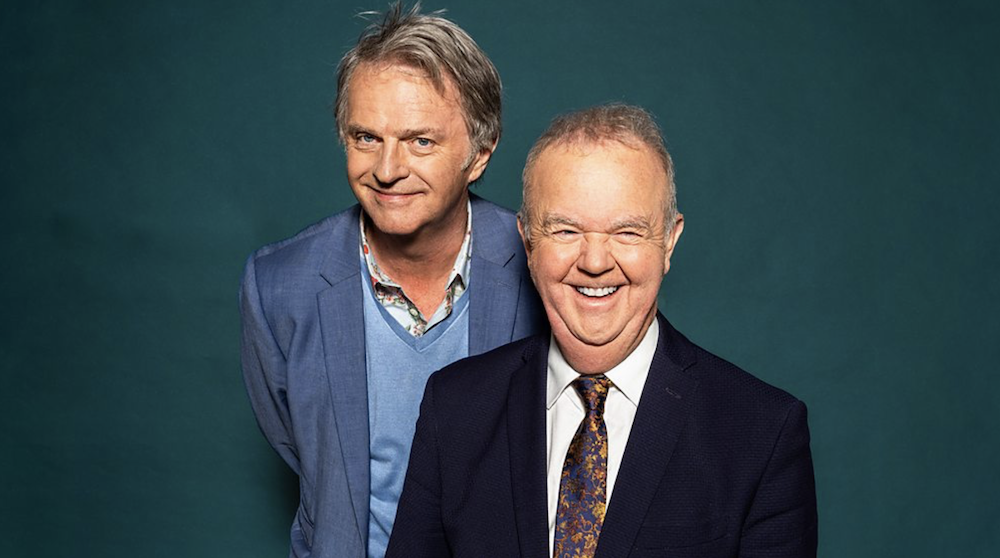The recent incident where the BBC’s Have I Got News For You broadcast a false claim about Euan Blair’s company throws a harsh spotlight on the enormous challenges facing modern journalism.
The mistake was blamed on young producers ‘marinated in social media’.
It is a difficult time to be a news journalist, particularly at institutions like the BBC, which are built on a bedrock of trust and rigorous fact-checking.
For those of us who began our careers as young graduates in a pre-internet world, the current environment is virtually unrecognisable. Our education was built on the principles of old-fashioned research. Libraries, physical documents, phone calls to primary sources and the slow, deliberate verification of facts. Nobody had heard of the internet, let alone “X” (formerly Twitter), where a claim can be viewed by three million people before a journalist even finishes their coffee. The speed of the digital age is now cannibalising the diligence of the journalistic craft.
The Digital Native Dilemma
The term used by Hat Trick Productions founder Jimmy Mulville – producers “marinated in social media”—perfectly captures the new reality. Younger professionals, having grown up as digital natives, inherently view platforms like X as primary conduits of information. In their world, virality often substitutes for veracity.
This leads to a critical breakdown of the traditional journalistic “gatekeeper” function:
Trust by Proximity
A widely circulated claim on social media, even if posted by a freelance journalist or an unverified user, can gain a false sense of credibility simply through its momentum and high engagement metrics (likes and shares).
The Race for Relevance
News production operates at a relentless 24/7 pace. The pressure to be topical and immediately reactive can lead to the “low-level mistake” that Mulville describes, where a producer prioritises the now over the true.
Misinformation Multiplier
The problem is cyclical. Mainstream media outlets, like the BBC, reporting a false claim originating from social media inadvertently validates that claim. It then feeds it back into the digital ecosystem with lethal credibility. This erodes the public’s trust in the very institutions designed to provide reliable information.
The Erosion of Trust in the BBC and Beyond
The core strength of the BBC has always been its reputation for impartiality and accuracy. When a high-profile mistake occurs, even on a comedy panel show with a news component, the damage to that credibility is significant.
The incident fuels the wider public scepticism about the media, where “fake news” and politically motivated misinformation are already rampant.
In my early years as a graduate, journalistic rigour was the non-negotiable standard. We were taught to seek truth and report it and to act independently. This meant we relied on our own confirmed sources, not the gossip or unverified reports of the day. The current generation must now navigate a “dysfunctional hybridity”. A world where they are tasked with fact-checking content that is already public and viral. Rather than verifying it before publication.
This shift necessitates a massive overhaul in training. Journalists today must be trained not just in traditional investigative techniques, but in advanced digital verification, source tracing and recognising the complex psychological tactics used by bad actors online.
The BBC and other credible newsrooms must ensure that the speed of the digital world does not completely eclipse the slow, vital work of establishing fact.
Ultimately, for the BBC to maintain its standing, the simple but profound lesson remains: when information comes from the echo chamber of social media, the first response must always be skepticism, followed by iron-clad, old-fashioned research.
Visit me on LinkedIn.
Read more of my blogs.
About Me
If you enjoy my blogs, you might be curious about my background. I’ve worked in PR and Marketing since 1993. Later, in 1999, I founded a full-service agency and spent the next 24 years successfully growing it. During that time, I had the privilege of partnering with some of the biggest blue-chip brands in the UK and learned extensively from the exceptional marketing professionals I met along the way. Then, in 2023, the management team I built successfully acquired my agency, 8848, setting me free to pursue new passions.
Now, my love of marketing and communications powers our own family venture: a retreat of holiday cottages in the Peak District. I love making brands look and work better, and consequently, in just a few short years, we’ve driven significant growth. In fact, thanks to my focus on SEO, we consistently rank on page one for most key regional search terms, making 2025 our busiest year yet.
Do you need help making your brand or business perform better? If so, I’d love to meet you.

